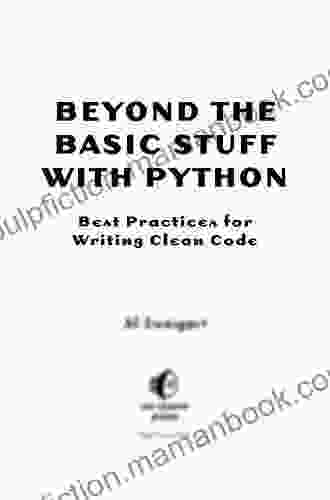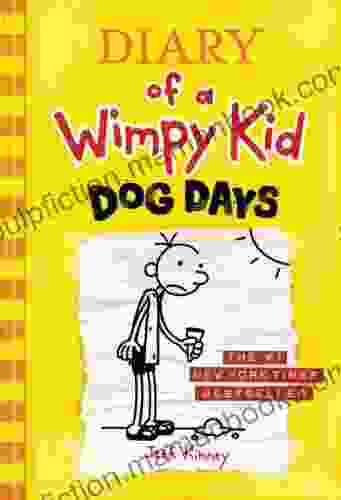Best Practices for Writing Clean Code

Clean code is essential for maintainable, scalable, and efficient software applications. By following best practices and conventions, developers can create code that is easy to read, understand, and change.
This guide will provide a comprehensive overview of best practices for writing clean code. We will cover topics such as naming conventions, code organization, documentation, and testing.
4.7 out of 5
| Language | : | English |
| File size | : | 2938 KB |
| Text-to-Speech | : | Enabled |
| Screen Reader | : | Supported |
| Enhanced typesetting | : | Enabled |
| Print length | : | 321 pages |
Naming Conventions
Consistent naming conventions help make code more readable and understandable. Here are some general guidelines to follow:
- Use meaningful names that clearly describe the purpose of variables, functions, and classes.
- Avoid using abbreviations or acronyms.
- Use camelCase for variable and function names, and PascalCase for class names.
- Use consistent naming patterns throughout your codebase.
Here are some examples of good and bad naming conventions:
| Good | Bad |
|---|---|
customerName | custName |
calculateTotal | calcTotal |
CustomerRecord | CustRec |
Code Organization
Organizing your code into logical modules and functions makes it easier to read, understand, and change. Here are some tips for effective code organization:
- Use functions to encapsulate specific tasks.
- Group related functions into modules.
- Use comments to explain the purpose of functions and modules.
- Keep your codebase organized and consistent by using a version control system.
Here is an example of a well-organized codebase:
├── modules │ ├── customer │ │ ├── customer.py │ │ ├── customer_dao.py │ │ ├── customer_service.py │ ├── order │ │ ├── order.py │ │ ├── order_dao.py │ │ ├── order_service.py ├── tests │ ├── customer │ │ ├── test_customer.py │ │ ├── test_customer_dao.py │ │ ├── test_customer_service.py │ ├── order │ │ ├── test_order.py │ │ ├── test_order_dao.py │ │ ├── test_order_service.py ├── README.md
Documentation
Documentation is essential for explaining the purpose and functionality of your code. Here are some guidelines for writing effective documentation:
- Write comments to explain the purpose and usage of functions and classes.
- Use docstrings to document the parameters, return values, and exceptions of functions.
- Create README files to provide an overview of your project and explain how to use it.
Here is an example of a well-documented function:
python def calculate_total(items): """Calculates the total cost of a list of items.
Args: items: A list of items.
Returns: The total cost of the items.
Raises: TypeError: If the items list is not a list. ValueError: If any item in the list is not a positive integer. """
total = 0 for item in items: if not isinstance(item, int) or item Testing
Testing is essential for ensuring the correctness and reliability of your code. Here are some tips for effective testing:
- Write unit tests to test the individual functions and classes in your code.
- Write integration tests to test the interactions between different parts of your code.
- Write end-to-end tests to test the functionality of your application as a whole.
Here is an example of a unit test:
import unittest class CalculateTotalTest(unittest.TestCase): def test_empty_list(self): self.assertEqual(calculate_total([]),0) def test_single_item(self): self.assertEqual(calculate_total([1]),1) def test_multiple_items(self): self.assertEqual(calculate_total([1, 2, 3]),6) def test_invalid_item(self): with self.assertRaises(ValueError): calculate_total([-1])By following these best practices, you can write clean, readable, and maintainable code that is easy to understand and change. Clean code is essential for building high-quality software applications that are reliable, scalable, and efficient.
4.7 out of 5
| Language | : | English |
| File size | : | 2938 KB |
| Text-to-Speech | : | Enabled |
| Screen Reader | : | Supported |
| Enhanced typesetting | : | Enabled |
| Print length | : | 321 pages |
Do you want to contribute by writing guest posts on this blog?
Please contact us and send us a resume of previous articles that you have written.
 Top Book
Top Book Novel
Novel Fiction
Fiction Nonfiction
Nonfiction Literature
Literature Paperback
Paperback Hardcover
Hardcover E-book
E-book Audiobook
Audiobook Bestseller
Bestseller Classic
Classic Mystery
Mystery Thriller
Thriller Romance
Romance Fantasy
Fantasy Science Fiction
Science Fiction Biography
Biography Memoir
Memoir Autobiography
Autobiography Poetry
Poetry Drama
Drama Historical Fiction
Historical Fiction Self-help
Self-help Young Adult
Young Adult Childrens Books
Childrens Books Graphic Novel
Graphic Novel Anthology
Anthology Series
Series Encyclopedia
Encyclopedia Reference
Reference Guidebook
Guidebook Textbook
Textbook Workbook
Workbook Journal
Journal Diary
Diary Manuscript
Manuscript Folio
Folio Pulp Fiction
Pulp Fiction Short Stories
Short Stories Fairy Tales
Fairy Tales Fables
Fables Mythology
Mythology Philosophy
Philosophy Religion
Religion Spirituality
Spirituality Essays
Essays Critique
Critique Commentary
Commentary Glossary
Glossary Bibliography
Bibliography Index
Index Table of Contents
Table of Contents Preface
Preface Introduction
Introduction Foreword
Foreword Afterword
Afterword Appendices
Appendices Annotations
Annotations Footnotes
Footnotes Epilogue
Epilogue Prologue
Prologue T L Simpson
T L Simpson Billy Jensen
Billy Jensen Philippe Huysveld
Philippe Huysveld Robert L Kendrick
Robert L Kendrick Plum Sykes
Plum Sykes William Styron
William Styron Brittany Anderson
Brittany Anderson Mohammed Akberali
Mohammed Akberali Yettish Sr
Yettish Sr Jacki James
Jacki James Maximus Torison
Maximus Torison Kate Stevens
Kate Stevens R M Wilson
R M Wilson Sandeep Dayal
Sandeep Dayal Nikki St Crowe
Nikki St Crowe Lang Lang
Lang Lang Alex Firefly
Alex Firefly Charles Edward
Charles Edward Bernard Lewis
Bernard Lewis Nathanael O Reilly
Nathanael O Reilly
Light bulbAdvertise smarter! Our strategic ad space ensures maximum exposure. Reserve your spot today!
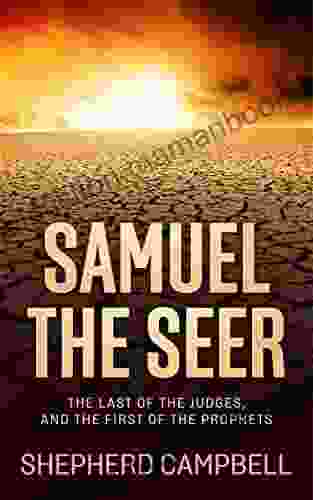
 Branson CarterThe Last of the Judges and the First of the Prophets After Moses: Samuel, the...
Branson CarterThe Last of the Judges and the First of the Prophets After Moses: Samuel, the... George HayesFollow ·11.6k
George HayesFollow ·11.6k Chance FosterFollow ·8.7k
Chance FosterFollow ·8.7k Samuel Taylor ColeridgeFollow ·6.6k
Samuel Taylor ColeridgeFollow ·6.6k Edwin BlairFollow ·5.1k
Edwin BlairFollow ·5.1k John KeatsFollow ·7.7k
John KeatsFollow ·7.7k Yasunari KawabataFollow ·5.7k
Yasunari KawabataFollow ·5.7k Will WardFollow ·17.4k
Will WardFollow ·17.4k Hassan CoxFollow ·4.3k
Hassan CoxFollow ·4.3k

 Joseph Conrad
Joseph ConradExport Now: Five Keys to Entering New Markets
Are you looking to expand your business into...
 Christopher Woods
Christopher WoodsElvis Presley: The King of Rock and Roll and an Icon of...
Elvis Presley was an...
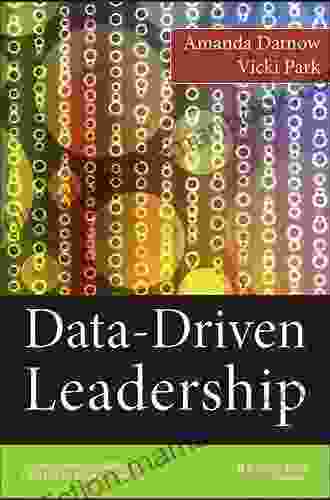
 Kelly Blair
Kelly BlairData-Driven Leadership: A Comprehensive Guide for...
In today's rapidly changing educational...
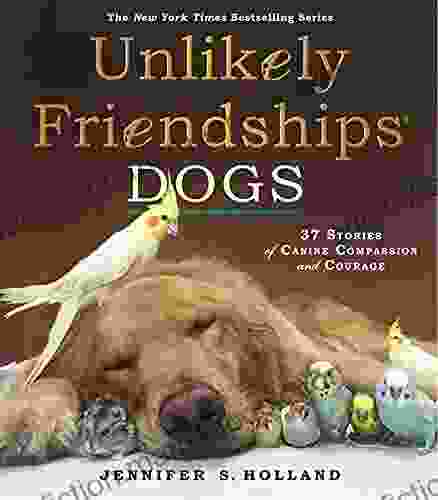
 Joe Simmons
Joe Simmons37 Stories of Canine Companionship and Courage
Dogs have been our...

 Martin Cox
Martin CoxChilling Psychological Thriller With Twist: Brace...
Prepare yourself for...
4.7 out of 5
| Language | : | English |
| File size | : | 2938 KB |
| Text-to-Speech | : | Enabled |
| Screen Reader | : | Supported |
| Enhanced typesetting | : | Enabled |
| Print length | : | 321 pages |


